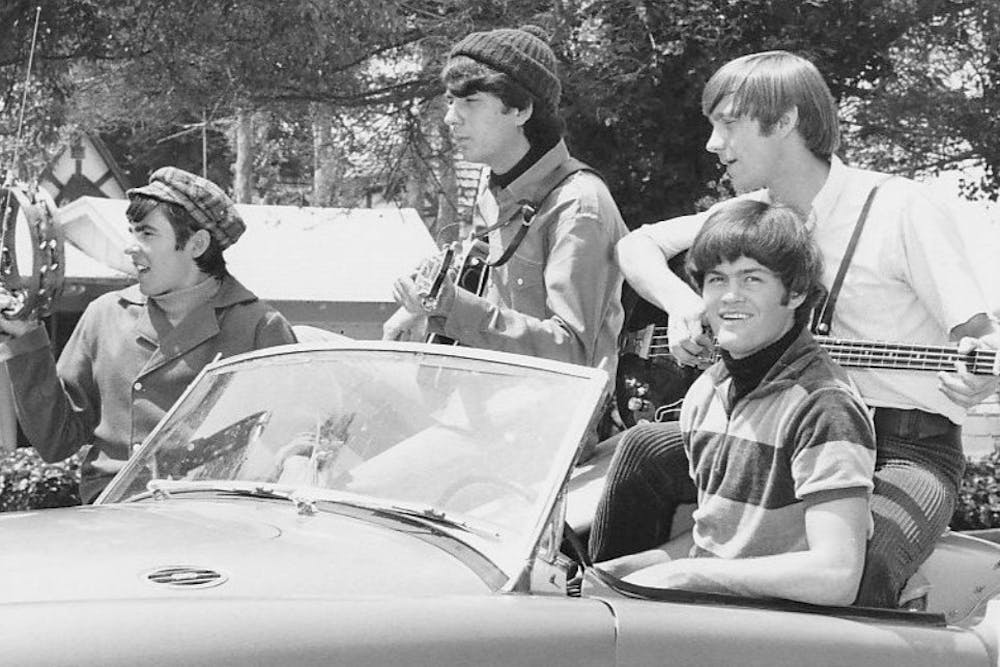Diamonds in the Dust is a weekly study of the criminally neglected; songs, albums and entire genres swept under the rug by a lack of media attention, misunderstandings or simply being too ahead of its time.
The Monkees – “Head”
Miley Cyrus is off her rocker. That's nothing new, but by intentionally distancing herself from her “good girl” persona has put her in a psychedelic spotlight for all the world to see. With her wild outfits, suggestive lyrics and new found Flaming Lips residency, Miley has purchased herself a one-way acid trip to self-expressionism.
The surprise release of the incredibly long album “Miley Cyrus and Her Dead Petz” is a complete deconstruction of what it means to be a popstar. Whether you enjoy the record or not is irrelevant – Cyrus deserves immense credit for shattering her preconceived notions and fighting back against a music industry that won’t stop controlling.
See more: Surprise Miley Cyrus album ‘Dead Petz’ a time-traveling acid drop made for the club
Interestingly enough, Miley isn’t the first ex-teenybopper to find a way to alienate entrenched fans. The Monkees’ story, for example, is frighteningly similar to hers. Beginning as a TV show, The Monkees was a fictional band that grew to be America’s “answer” to the British invasion in the mid-to-late ‘60s.
A series of smash hit records like “I’m A Believer” and “Daydream Believer” catapulted the band into super-stardom. The band’s songs and likeness were mostly an act though, sporting ghost writers, image coaches and industry executive guidance – much like Miley's tirade as Hannah Montana.
Several years into their careers, both Miley and The Monkees release borderline dangerous records in relation to their preconceived notions. The Monkees’ 1968 soundtrack to the film “Head” is a bizarre and sometimes disturbing record which Miley’s most recent project mirrors.
Album opener “Opening Ceremony,” is a soundscape of hard-cut noises and strange voices that personifies The Monkees melting away its old sound. Leading straight into the gorgeous psych-ballad “Porpoise Song,” which drips with existential lyrics and elaborate production, one can’t help but hear echoes of “Dead Petz” tracks like “Miley Tibetan Bowlzzz” and “The Floyd Song.”
Miley’s usage of throwaway snippets like “F-n’ F-d Up,” an off-putting track of distorted bass, eerie keys and morphed vocals, is a modernization of what The Monkees did with “Supplicio” and “Dandruff?.” These quickly demonizing morsels are practically built to scare away the artists’ younger fans.
The Monkees’ “As We Go Along,” a marvel of male vocalization, features guitar-gods Neil Young and Ry Cooder. These two massive guest spots is reminiscent of Miley’s partnership with The Flaming Lips on songs like “Something About Space Dude” and “I Get So Scared.”
“Miley Cyrus and Her Dead Petz” may not be the first account of a pop-star setting their old-self alight, but her attempt at it deserves to be lauded, if not for the music, then for the sheer audacity of it all. Hopefully her surprise record has unforeseen success and more pop-stars shatter their expectations – now that would be a trend worth starting.
Nico – "Desertshore"
One of rock music’s most polarizing woman and artisan, Nico, has only managed to remain relevant through her association with The Velvet Underground and Andy Warhol. Take those collaborations away though, and Nico’s career would likely have never existed, despite having enormous talent and creative drive.
Beach House singer Victoria Legrand is an amalgamation of Nico’s signature voice and dream-pop tendencies. But where Beach House places emphasis on “dream,” Nico’s embodies the ominous nightmare.
“Depression Cherry,” the new Beach House record, is a failed attempt at bringing unheard atmosphere to the band’s tired sound. Nico’s “Desertshore” from the '70s is an utter assault on your depressive tendencies and a masterclass in how to convey true emotion through music.
See more: Beach House's new album 'Depression Cherry' stuck in a dream from which it can't wake
So while it’s easy to draw comparisons of Legrand’s and Nico’s vocals, the latter musician’s handling of organs and keys is strikingly more nuanced. “Depression Cherry” tracks like “PPP” and “Levitation” deserve the impassioned subtlety seen in “Desertshore’s”, “Janitor Of Lunacy” or “The Falconer.”
Nico’s capacity to enthrall her listener’s into places of foreboding possibility is the kind of influence the clearly fatigued Beach House needs on its next record. “Desertshore” is by no means a perfect listen, but the moments excellence are profound and it would be a shame to let its sinister existence be forgotten.
Related Links:
Diamonds in the Dust: Comparing Kanye West and EDM to latin dance music and gangsta rap
10 things you may have missed at the 2015 MTV Video Music Awards
Contact the reporter at nlatona@asu.edu or follow @Bigtonemeaty on Twitter.
Like The State Press on Facebook and follow @statepress on Twitter.




